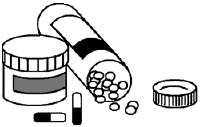The Department of Justice today announced that a Waukesha, Wisconsin woman will receive a $4.3 million reward for blowing the whistle on PharMerica Corporation, a Kentucky based pharmacy chain that caters to nursing homes and hospitals. Jennifer Denk, a pharmacist employed in the company’s Pewaukee, Wisconsin facility, filed a whistleblower complaint against PharMerica in 2009. She accused the company of Medicare fraud for dispensing Schedule II narcotics without a valid prescription.
Federal law has stringent requirements for dispensing narcotics. Schedule II narcotics are the most potent and subject to abuse according to the Drug Enforcement Agency. Schedule II drugs include morphine, methamphetamine and oxycodone.
Denk says the company cut corners and didn’t adequately train its staff. According to the DEA, the company allowed nursing home staff members to phone in orders for narcotics. There was no procedure in place, however, to insure that a physician had approved the prescription.
Nationwide, PharMerica employs over 6000 workers and operates pharmacies in 41 states. According to public filings, they bill Medicare almost $1 billion per year.
To resolve the allegations, PharMerica agreed to pay fines and penalties of $31,500,000.00. The company also agreed to a corporate integrity agreement and is subject to ongoing compliance reviews.
In announcing the settlement, a Justice Department spokesperson said, “Pharmacies put patients at risk when they dispense Schedule II narcotics, which have the highest potential for abuse of any prescription drug, without a valid prescription from a physician. Today’s settlement demonstrates our commitment to the fight against the misuse of controlled substances.”
Denk’s case was brought under the federal False Claims Act, a whistleblower statute that dates back to the Civil War.
Under the Act, a whistleblower can receive up to 30% of whatever the government collects from the wrongdoer. The typical award is closer to 15%.
To receive an award, a whistleblower must have original source information about a fraud involving a government program. Since Medicare and Medicaid are funded by tax dollars, Denk’s information became eligible for an award.
The story not told in the media was Denk’s efforts to correct the problem before becoming a whistleblower. There is a popular perception that whistleblowers are simply motivated by money. In our experience, most first try to work internally to fix problems and end fraud.
According to court records, long before filing a complaint in federal court, Denk told her supervisor that the company was violating federal law and didn’t have valid prescriptions for many of the narcotic orders. She said that she was repeatedly told to “not worry” and that the company would “fix it later.” Instead of fixing the problem, however, the invalid scripts wound up in boxes.
Whistleblowers save taxpayers billions of dollars per year. In our opinion, they are heroes. For their efforts, the Justice Department paid out $635 million in whistleblower awards last year.
Interested in learning more? Give us a call. For more information contact attorney Brian Mahany at or by telephone at (direct).
A note about confidentiality… We understand that many of our clients are worried about losing their job and retaliation. All communications with our office are protected by the attorney – client privilege and kept strictly confidential. Please note that potential clients should never contact a lawyer from a work computer or work telephone.
MahanyLaw – America’s Whistleblower Lawyers
Please visit our PharMerica whistleblower cornerstone post for all the information on the company.


